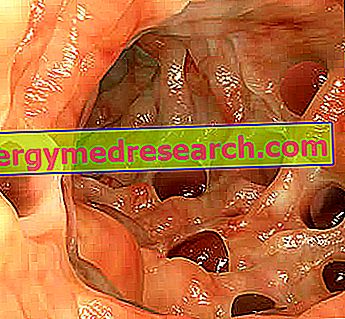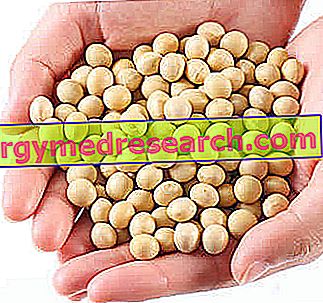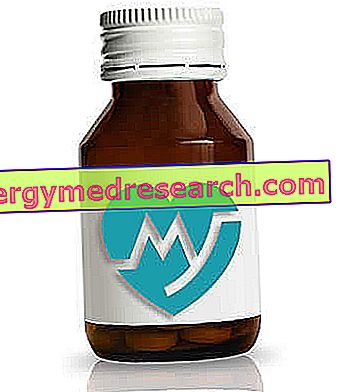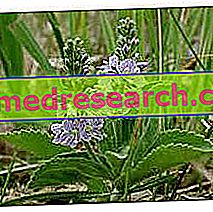Diverticulitis is a colon disease. It represents the complication of an anatomical defect called diverticulosis, characterized by the formation of several intestinal diverticula.

When diverticula becomes infected / inflamed it is called diverticulitis.
The causes of diverticulosis and diverticulitis are not entirely clear. It is hypothesized that they have a genetic basis emphasized by some behavioral factors (diet and comorbidity).
What to do
- Prevention: it cannot be adopted for congenital diverticulosis, but it can be effective in the acquired one and in slowing down / preventing the evolution in diverticulitis / diverticular disease (recurrent diverticulitis affecting many diverticula).
- Recognizing the symptoms: diverticulitis is not an easily recognizable condition. It occurs very frequently in people with irritable bowel syndrome (SCI) and the symptoms of mild diverticulitis can be easily confused:
- Abdominal discomfort, pain or cramps following a meal.
- They occur mainly after eating certain foods.
- Meteorism and flatulence.
- Diarrhea or constipation.
- Pain located on the left side.
- In severe cases:
- Temperature.
- More intense pains.
- Hemorrhagic complications.
NB : Diverticula and diverticulosis are asymptomatic.
- Contact your doctor or gastroenterologist for an accurate diagnosis and treatment. After an objective examination, they will prescribe analyzes to confirm the suspicion of diverticulitis:
- Abdominal ultrasound.
- Computed tomography.
- Colonoscopy.
NB : Diverticulitis therapy is aimed at reducing the possibility of acute or possibly curing them. However, diverticula cannot be eliminated and remain in the intestine throughout the life of the subject.
- First of all it is essential to stop smoking, to drink alcohol and to expose yourself to toxic substances (of any kind).
- It is advisable to treat chewing particularly, to avoid leaving solid pieces indigestible in the colon.
- The remedies for diverticulitis can be differentiated into:
- Diet and drug therapy for diverticulosis, prevention of diverticulitis and mild infection.
- Diet and drug therapy for severe diverticulitis.
- Surgery for severe diverticulitis and complications (eg diverticular abscess, perforation and peritonitis).
What NOT to do
- If you are unfamiliar with diverticulosis (congenital or acquired), do not take any preventive measures.
- Neglect symptoms and do not seek medical attention or gastroenterologist.
- Follow an incorrect diet.
- Sedentary lifestyle.
- Abuse of irritating laxatives.
- Abuse food / drink or other harmful substances.
- Do not chew properly.
- Ignore drug therapy.
What to eat
- In case of diverticulosis and to prevent diverticulitis, it is advisable to prefer:
- Foods rich in soluble fiber: vegetables and fruit without peel, hulled legumes, cereals and non-integral pseudocereals, algae.
NB : A recent study denies the correlation between higher fiber consumption and lower incidence of diverticulitis. Nevertheless, constipation remains the main risk factor in the formation of acquired diverticula.
- Well-hydrated foods: all fresh ones, possibly raw (especially fruits and vegetables).
- Foods that are completely chewable or with little solid residue: the entry of organic material into the diverticula may be the reason for bacterial proliferation and infection.
- Probiotic foods: are those rich in lactobacilli, bifidobacteria and eubacteria, which represent real "reinforcing colonies" for the intestinal bacterial flora. Some examples are: yogurt, kefir, buttermilk, tofu, tempeh, miso, gherkins, sauerkraut.
- Lean foods: the fat portion of the diet must consist of cold-pressed vegetable oils (for example extra virgin olive oil). Among the meats and fish we recommend: chicken, turkey, veal, pork loin, cod, plaice, sea bass, sea bream etc.
- In case of severe diverticulitis, it is advisable to prefer:
- Liquid foods, without any fixed residue.
NB : After surgery, artificial nutrition will follow.
What NOT to Eat
- In the case of diverticulosis and to prevent diverticulitis, it is advisable to avoid or minimize:
- Alcohol.
- Coffee, tea, cocoa, ginseng and energy drinks: all rich in xanthines.
- Carbonated and / or acid drinks.
- Non-chewable food or with excessive solid residue: dried fruit (walnuts, almonds, etc.), seeds of sweet fruit (grapes, pomegranate, etc.), totally indigestible vegetable peel (aubergines, tomatoes, etc.).
- Large portions of milk, especially if not entirely tolerated.
- Spices and spicy foods: pepper, red pepper, excess of garlic and onion, ginger, horseradish, certain cheeses and cured meats.
- Excessively fatty foods, especially with poor quality lipids: these are junk foods like snacks, fast food, sweets, etc.
NB : It is not advisable to eliminate fats from the diet because they exert a lubricating effect on the intestine, facilitating evacuation and preventing constipation.
Natural Cures and Remedies
- Herbalist and supplements:
- Plants or laxative extracts based on soluble fiber (NOT irritating):
- Psyllium seeds and extracted fiber.
- Amorphophallus konjac and glucomannans extracted.
- Tires: of Guar, of karaya etc.
- Mucilage: for example agar agar.
- Probiotic supplements.
- Supplements of anti-inflammatory and antioxidant molecules: the correlation with diverticulitis is not known, but could contribute to reducing inflammation: omega 3, polyphenolic antioxidants, vitamin antioxidants (A, C, E) and mineral antioxidants (zinc and selenium).
Pharmacological care
- Prophylactic drug therapy:
- Non-absorbable antibiotics in the intestine: they act in the colon without entering the circulation.
- Acute phase drug therapy:
- Systemic antibiotics:
- Ciprofloxacin (eg Ciprofloxac, Samper, Ciproxin, Kinox).
- Metronidazole (eg Metronid, Deflamon, Flagyl).
- Clindamycin (eg Dalacin-T, Clindamycin BIN, Zindaclin, Dalacin-C).
- Pharmacological associations such as sulfamethoxazole / trimethoprim (eg Bactrim).
- Probiotics: for example Enterogermina.
- Non-steroidal analgesics: they are not always recommended because they can induce constipation, delay the onset of symptoms and therapy:
- Ketorolac (eg Girolac, Rikedol, Benketol, Kevindol).
- Opioids.
Prevention
- In the presence of symptoms, seek medical attention for a diagnosis.
- Follow a balanced diet aimed at prevention (many fibers and probiotics and low fat).
- If present, prevent and treat constipation.
- If necessary, observe the prescribed preventive drug therapy.
- Practicing physical activity.
Medical Treatments
- Surgery: useful only when diverticulitis does not respond to drug therapy or becomes complicated. It is based on the excision of the affected intestinal area.



